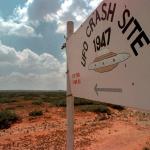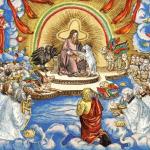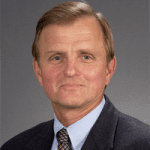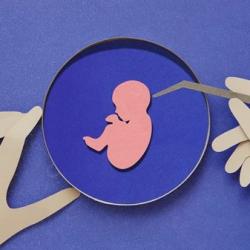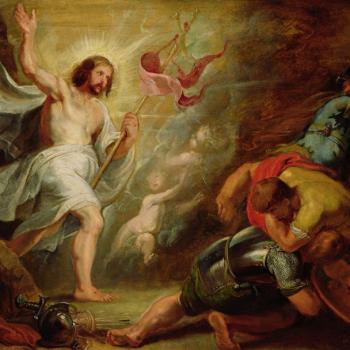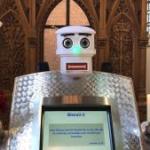Paul Lange on Praying for a Miracle
Patheos ST 4148. Miracles 8
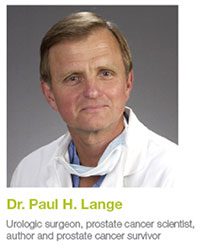 Should we be praying for a miracle? Let’s ask Paul Lange.
Should we be praying for a miracle? Let’s ask Paul Lange.
Who is Paul Lange? When introducing this series on miracles within the field of theology & science, I reported on my friend and colleague, Paul Lange, who is Professor and Chairman Emeritus in the Department of Urology University of Washington School of Medicine at University of Washington (UW). He is also Founding Director Emeritus, Institute of Prostate Cancer Research, UW and Fred Hutchinson Cancer Research Center, also known as “The Hutch.”
Dr. Lange is internationally recognized for his clinical and experimental work in a variety of genitourinary cancers, especially prostate and testis. He is known especially for his contribution to the development of PSA testing in the management of prostate cancer. And he wrote the book, Prostate Cancer for Dummies.
Paul saved my life with a radical prostatectomy in 2009. The fact that I’m alive now he calls a “miracle.” I dispute that. Even so, I’m profoundly grateful to God for putting Paul in that surgery room.
Paul’s mind breathes science in and out like a trout’s gills respirate mountain stream water. So we ask: can we explain miracles scientifically? Let’s interview Paul and ask: should we be praying for a miracle?
TED. Paul, why is it that you’ve taken a research interest into the subject of praying for a miracle?
PAUL. As a cancer surgeon, I was confronted often by people who prayed for a miracle (e.g. a cure of their cancer) and sometimes asked me to pray with them.
One day on medical rounds my residents and fellows challenged me to state my views on prayers for healing and most specifically whether God changes the laws of the universe sometimes when confronted with a prayer entreaty. I promised to give them an answer in writing. I did and I’ve have been revising and enlarging that answer now for at least two decades.
TED. After decades of looking, what have you found out about praying for a miracle? Have you formulated a theory of miracles? If so, what do you think?
PAUL. I’ll answer both of these questions together. In the early days I used to state that I had never seen a miracle in my medical experiences. And I personally knew of no physician that had (and that included Francis Collins).
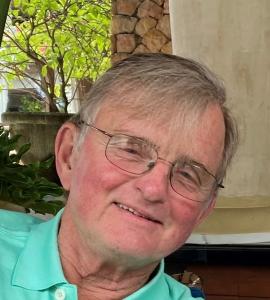
I also talked about “the freak rate” referring to those events in medicine (esp. cancer ) where the clinical course toward cure was unexplained and rare. These events (again esp. in cancer) are well described.
I now call freak healings “type II miracles”–that is events (usually cures) that are described but rare. While these events were (or are) scientifically unexplained, medicine has/had great confidence that someday they will/would be explained.
A great example of this is the previously unexplained spontaneous regressions of metastatic melanoma. That observation led to invigorating the field of tumor immunology and most recently to immune modulating drugs that now are curing many people with advanced melanoma.
Now I would add that there may be “freak rate” events (or more accurately type II miracles) that will never be explained (e.g., the “science” we’ll never know?).
TED. Regardless of whether we can find a scientific explanation for a healing, what should we pray for?
PAUL. So, in prayers for healing, the primary purpose of the prayer is to surrender to the will of God with its accompanying “peace that surpasses understanding.” We should pray like Jesus in Gethsamene, “ thy will be done”.
A “side prayer” could be asking: “if it is thy will, O God, make me one of the freak-rate people.” And that possibility might be enhanced in a believer by the placebo effect.
So yes, I believe in miracles as did Einstein who believed that everything is a miracle: the miracle of an orderly universe in which divine action seems to occur.
Conclusion
Should we be praying for a miracle? Yes, answers distinguished scientist and cancer specialist Paul Lange. Freak healings occur. Freak healings do not yet have a scientific explanation. So, we should ask God–if it be God’s will–to provide us with a freak healing.
When it comes to praying for a miracle, the role of scientific explanation will draw our interest, to be sure. But plausible explanations may be irrelevant. God, the author of the laws of nature, is certainly capable of healing according to those laws of nature. Or not.
If you want more on miracles…
Patheos ST 4141 How to see a miracle? Miracles 1
Patheos ST 4142 Two Healing Miracles for Sainthood. Miracles 2
Patheos ST 4143 Hume on Miracles. Miracles 3
Patheos ST 4144 Is Special Divine Action miraculous? Miracles 4
Patheos ST 4145 Jesus’ Nature Miracles. Miracles 5
Patheos ST 4146 Is resurrection the ultimate miracle? Miracles 6
Patheos ST 4147 The proleptic power of new creation. Miracles 7
Patheos ST 4148 Paul Lange on Miracles. Miracles 8
Patheos ST 4149 C.S. Lewis on Miracles. Miracles 9
▓
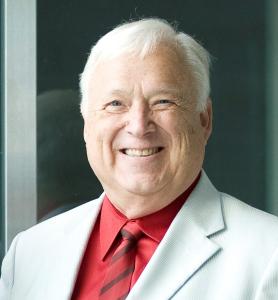
Ted Peters (Ph.D., University of Chicago) is a public theologian directing traffic at the intersection of science, religion, and ethics. Peters is an emeritus professor at the Graduate Theological Union, where he co-edits the journal, Theology and Science, on behalf of the Center for Theology and the Natural Sciences, in Berkeley, California, USA. He recently co-edited Astrobiology: Science, Ethics, and Public Policy (Scrivener 2021) as well as Astrotheology: Science and Theology Meet Extraterrestrial Intelligence (Cascade 2018). He also co-edited Religious Transhumanism and Its Critics (Lexington 2022) and The CRISPR Revolution in Science, Ethics, and Religion (Praeger 2023). Peters is author of Playing God: Genetic Determinism and Human Freedom (Routledge, 2nd ed, 2002) and The Stem Cell Debate (Fortress 2007). See his blogsite [https://www.patheos.com/blogs/publictheology/] and his website [TedsTimelyTake.com].
▓



